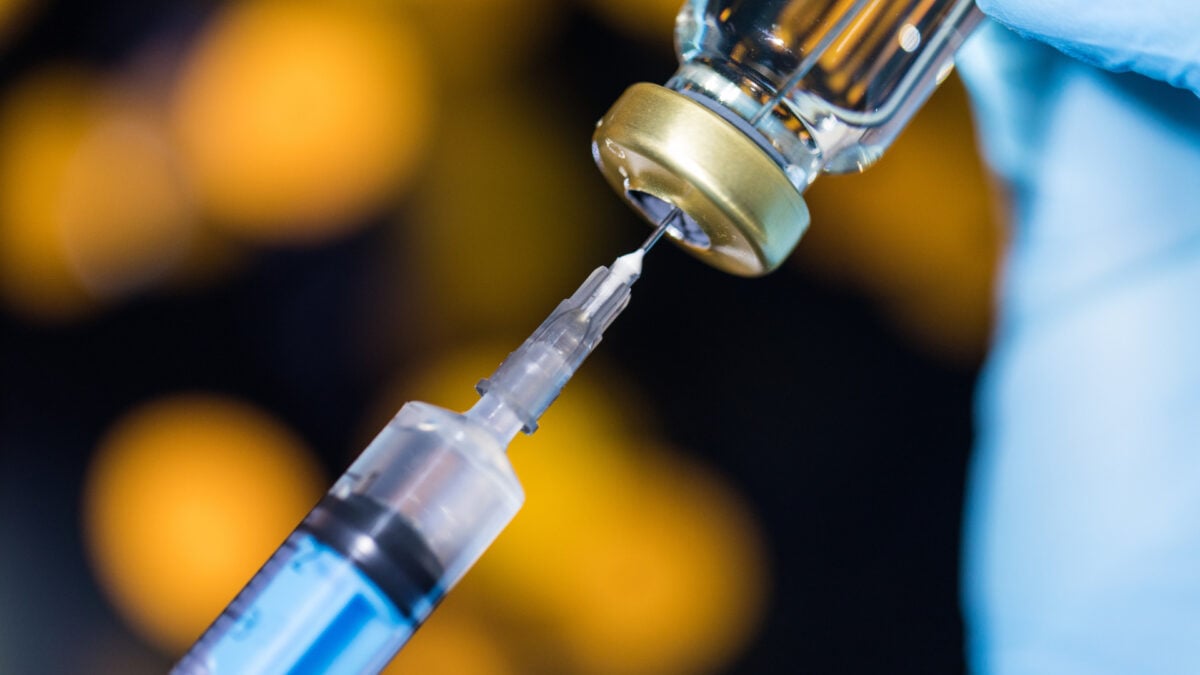Experimental 'Off-the-Shelf' Cancer Vaccine Is Already Prolonging Lives, Study Suggests

An experimental “off-the-shelf” vaccine for recurring pancreatic and colorectal cancer is showing great promise so far. Early results show that the vaccine appears to be safe and is potentially prolonging people’s lives.
Researchers at the University of California, Los Angeles, the Memorial Sloan Kettering Cancer Center in New York, and elsewhere are developing the vaccine, called ELI-002. In Phase I trial data released this week, people who received ELI-002 often developed an immune response to a specific type of cancer-linked mutation and lived longer than expected. The team has since launched a larger Phase II trial of the vaccine platform.
“If this result can be confirmed in large randomized clinical trials, this could be utilized in 90% of pancreatic cancers and 50% of colon cancers who have this mutation,” lead study author Zev Wainberg, co-director of the Gastrointestinal Oncology program at UCLA, told Gizmodo.
Cancer vaccines are generally therapeutic, designed to improve our body’s natural ability to stop cancer from returning. ELI-002 is a peptide-based vaccine that tries to train our immune system’s T cells to go after cells containing a mutated KRAS gene. KRAS mutations often fuel the growth of cancerous cells, and they’re commonly found in many solid tumor cancers (up to 25%), particularly pancreatic and colorectal cancers. Unlike vaccines that have to be tuned to a person’s specific cancer, ELI-002 is intended to work against a majority of KRAS-containing cancers right from the get-go.
In this latest trial, the researchers tested out a version of ELI-002 (ELI-002 2P) on 25 patients: 20 with pancreatic cancer and 5 with colorectal cancer. The patients had undergone standard treatment but continued to have residual cancer cells lingering in their blood, raising the risk of future recurrence. All were given six doses of ELI-002, aimed at their lymph nodes, while half received booster shots as well.
About 85% of people generated an immune response to the two mutated KRAS proteins targeted by the vaccine, with two-thirds having a strong response. 67% of people also developed an immune response to other KRAS proteins, suggesting the vaccine further amplified their immunity to these mutations.
Overall, people with pancreatic cancer vaccinated with ELI-002 2P survived for 29 months and lived free of cancer recurrence for 15 months on average—better than the average survival and recurrence-free length historically seen with similar cases, according to the researchers. And those with the strongest immune responses fared even better. The team’s findings were published Monday in Nature Medicine.
Phase I trials aren’t intended to conclusively show that an experimental drug or vaccine works, so the findings should still be viewed with some caution until more data is collected. But it certainly looks like we’re on the verge of a breakthrough with cancer vaccines. Several candidates have shown similarly encouraging results in human trials, and the first of these newest vaccines could reach the public within the next few years.
For their part, Wainberg and his colleagues have already completed enrollment of a Phase II trial for ELI-002, with results expected in 2026. This trial will test an updated version of the vaccine (named ELI-002 7P) that will hopefully cover an even broader array of KRAS mutations.



- CỘNG ĐỒNG
- News
- Tech
- Food
- Causes
- Personal
- Art
- Crafts
- Dance
- Drinks
- Film
- Fitness
- Jeux
- Gardening
- Health
- Domicile
- Literature
- Science
- Networking
- Party
- Religion
- Fashion
- Sports
- Étoiles
- Xã Hội


